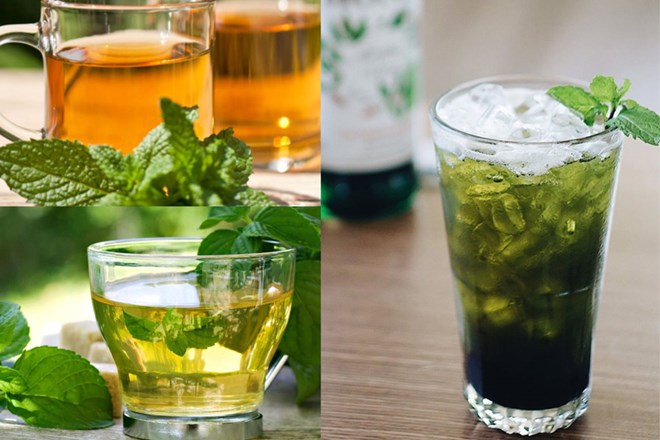1. Black tea
Black tea is one of the most popular morning teas for lung health and well-being. According to a study published in the journal Nutrition, black tea contains polyphenols such as theaflavins and catechins, which are powerful antioxidants.
These compounds help protect lung cells from oxidative damage caused by environmental toxins.
2. Green tea
Green tea has many health benefits, including its ability to support and protect lung health. Green tea helps reduce inflammation and protect the lungs from oxidative damage.
A 2018 study published in the Journal of Nutrition found that more than 1,000 adults in Korea who drank at least two cups of green tea a day had better lung function than those who didn't.
3. Peppermint tea
Peppermint tea has many benefits for the respiratory system. The active compound in peppermint - menthol - has bronchodilator properties, making breathing easier.

Research published in Frontiers in Immunology highlights that menthol has anti-inflammatory and analgesic effects, which help relieve throat irritation and respiratory inflammation.
For people living in polluted cities, peppermint tea can help clear nasal passages, reduce congestion and improve airflow, reducing symptoms of shortness of breath.
4. Ginger tea
Ginger is known for its anti-inflammatory and antioxidant properties. It is especially beneficial for lung health, as it can help reduce inflammation in the respiratory tract.
A study published in the Turkish Journal of Medical Sciences found that ginger extract can reduce inflammation in the lungs and fight damage caused by air pollution.
5. Licorice root tea
Licorice root has been used for centuries in traditional medicine to treat respiratory conditions, including coughs, sore throats, and bronchial infections.
Licorice root tea has anti-inflammatory and expectorant properties, making it a great choice for improving lung health and combating the effects of air pollution.
6. Eucalyptus tea
Eucalyptus tea is an effective herbal tea for improving respiratory health. Eucalyptus leaves contain a compound called eucalyptol, which has powerful antibacterial and anti-inflammatory properties.











